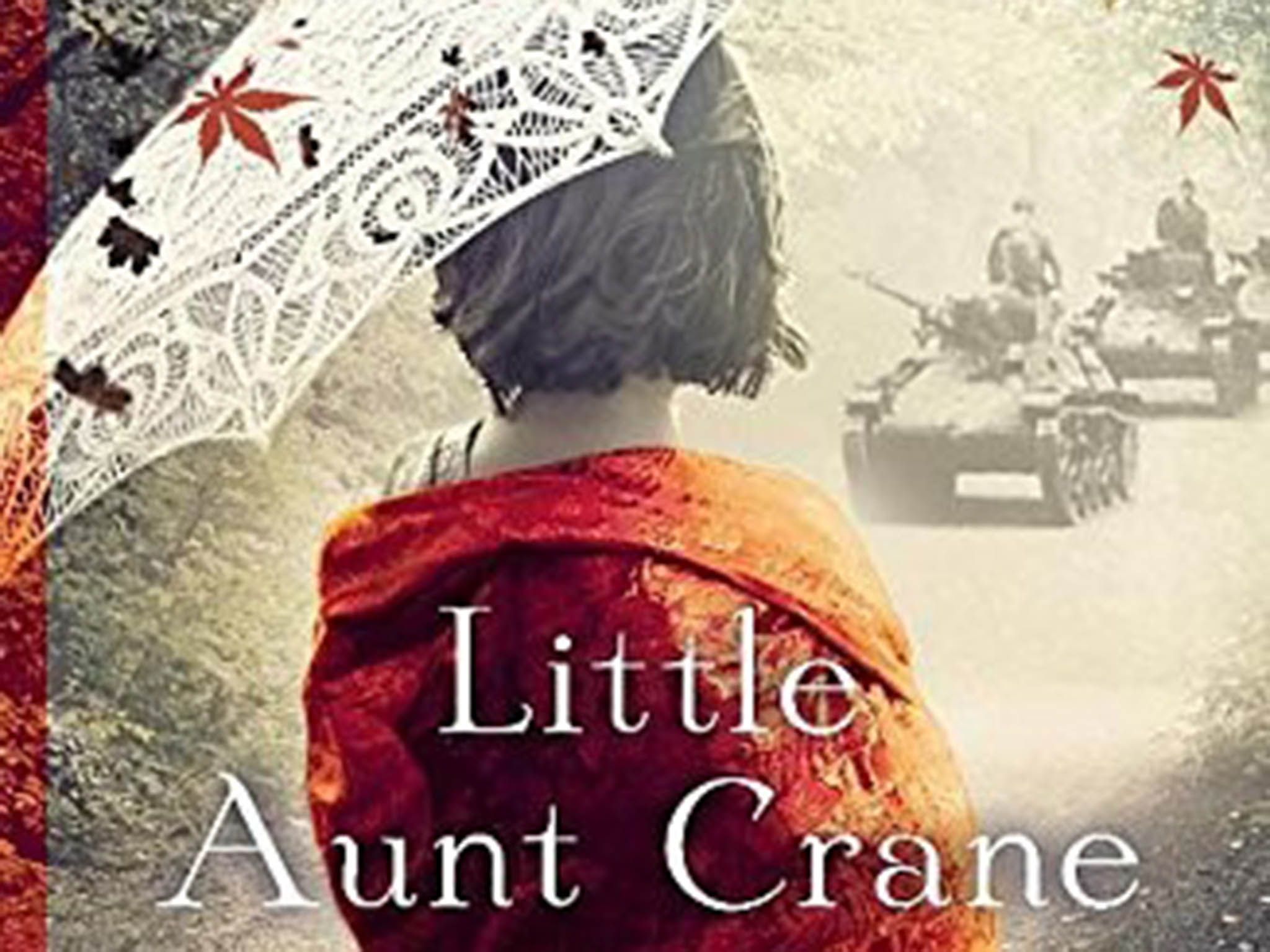Geling Yan, Little Aunt Crane: Survival amid China's crisis, book review
Geling Yan explores a period of Chinese/Japanese history which is little-known in the West

Your support helps us to tell the story
From reproductive rights to climate change to Big Tech, The Independent is on the ground when the story is developing. Whether it's investigating the financials of Elon Musk's pro-Trump PAC or producing our latest documentary, 'The A Word', which shines a light on the American women fighting for reproductive rights, we know how important it is to parse out the facts from the messaging.
At such a critical moment in US history, we need reporters on the ground. Your donation allows us to keep sending journalists to speak to both sides of the story.
The Independent is trusted by Americans across the entire political spectrum. And unlike many other quality news outlets, we choose not to lock Americans out of our reporting and analysis with paywalls. We believe quality journalism should be available to everyone, paid for by those who can afford it.
Your support makes all the difference.Geling Yan is an award-winning author and screenwriter in her Chinese homeland, with several of her works being adapted for the screen. In this novel, she explores a period of Chinese/Japanese history which is little-known in the West; the fate of the Japanese who had been encouraged to colonise Manchuria prior to the Second World War.
At the end of that war, Japanese villagers in Manchuria find themselves facing the advancing Chinese army alone. Some immediately flee back to Japan, but others left behind commit mass suicide rather than become captives. Sixteen-year-old Tatsuru chooses life over honour, but her freedom is short-lived as she is captured by people traffickers and sold to the Zhang family. She becomes Duohe, bought to give birth secretly to the children that only-son, Zhang Jian and his wife Xiaohuan, are unable to have themselves.
Yan sets the scene well; the Japanese villagers’ fear is palpable as they hear the Chinese army approach. Their docile acceptance of an honourable death is a chilling demonstration of their fear of reprisals and loss of face. Tatsuru’s brave march through hostile China, as she tries to stay ahead of the army, imbues her with a quiet strength and stoicism. Those who cannot keep up with the group are either left behind or killed, even babies and children. Tatsuru does her best to save those she can before being captured, put in a sack and sold like a bag of rice.
Her relationships with Zhang Jian and his wife are complex and shifting, her fertility both a blessing and a curse for Xiaohuan. She provides the couple with their longed for children but the price each pays for this unusual arrangement cannot be underestimated. At first, Zhang Jian is uncomfortable compelling Tatsuru to have sex with him, silent tears her only reproach. Later, he is torn between gratitude to Tatsuru for giving him his children and his love for his fiery but increasingly distant wife. Initially, Xioahuan finds the little Japanese woman unfathomable but slowly they reach an understanding and a strange kind of friendship is born. They become co-mothers of the children and formidable when they join forces in any disagreements with Zhang Jian.
Against the backdrop of a China being remade by Chairman Mao, Yan takes a great sweep of history and boils it down to an intensely personal story, while Tyldesley’s smooth translation retains the lyricism and keeps the novel rooted in its time and place. At times lyrical and always deeply moving, Yan’s grand tale is one to savour.
Little Aunt Crane, by Geling Yan (Trs by Esther Tyldesley). Harvill Secker, £14.99
Join our commenting forum
Join thought-provoking conversations, follow other Independent readers and see their replies
Comments